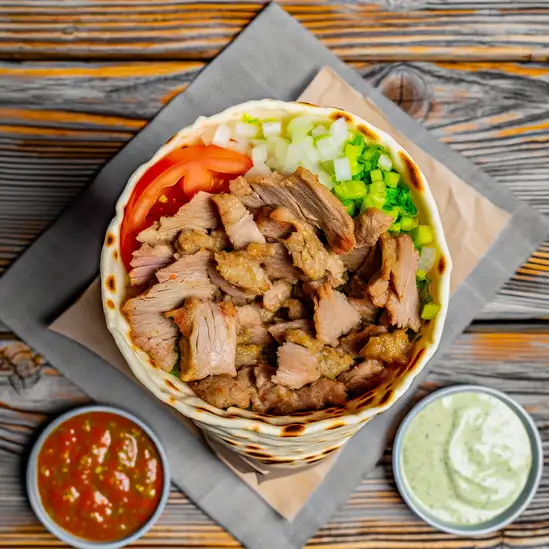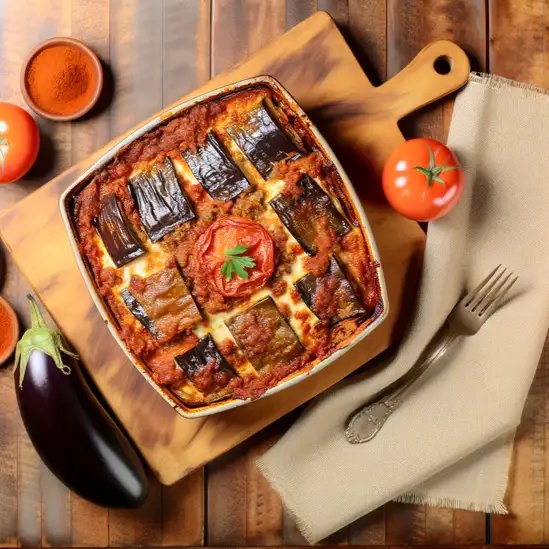


Beirut is one of those cities that grabs you the moment you step onto its bustling streets. There’s an electric energy in the air—a mix of old-world charm and modern pulse that feels alive in every corner. Imagine walking along the Mediterranean coast,the salty breeze brushing your face,while the call of street vendors and the distant hum of music blend into a vibrant soundtrack. The city’s skyline is a patchwork of sleek towers and crumbling Ottoman-era buildings,each telling a story of resilience and reinvention. What really makes Beirut unforgettable is its soul. It’s a place where history and culture collide with a youthful spirit. You’ll find yourself wandering through narrow alleys lined with colorful street art,stopping at tiny cafes where the rich aroma of freshly brewed Arabic coffee mingles with the scent of za’atar and grilled meats. The people here are warm and fiercely proud,always ready to share a laugh or a story over a plate of mezze that bursts with flavors—think tangy sumac,creamy hummus,and smoky baba ganoush. Evenings in Beirut have their own magic. The city lights up with lively bars and rooftop lounges where you can sip on arak while watching the sunset paint the sky in shades of pink and gold. It’s a place that invites you to slow down,soak in the contrasts,and feel connected to a culture that’s as rich and layered as the city itself. Trust me,Beirut isn’t just a destination—it’s an experience that stays with you long after you leave.
The information on this page is currently being reviewed by Tripkliq and should be used as a guide only
Eng word: Hello
Eng pronunciation: Marhaban
Local language: مرحبا
Eng word: Goodbye
Eng pronunciation: Wada'an
Local language: وداعا
Eng word: Thank you
Eng pronunciation: Shukran
Local language: شكرا
Eng word: How much
Eng pronunciation: Kam al-si'r
Local language: كم السعر
Eng word: Toilet
Eng pronunciation: Mirhad
Local language: مرحاض
Eng word: Help me
Eng pronunciation: Sa'idni
Local language: ساعدني
Eng word: Yes
Eng pronunciation: Na'am
Local language: نعم
Eng word: No
Eng pronunciation: La
Local language: لا
Eng word: Excuse me
Eng pronunciation: Afwan
Local language: عفوا
Beirut was originally a Phoenician city dating back to around 3000 BC, making it one of the oldest continuously inhabited cities in the world.
Under Roman rule, Beirut flourished as a major port and was known as Berytus. It was famous for its law school and became an important center for learning and culture.
During the Byzantine era, Beirut faced several invasions, including by the Sassanid Persians and later by the Muslim Arab forces.
Beirut became part of the Ottoman Empire in the 16th century. It was an important trade center and was known for its production of silk and cotton.
After World War I, Beirut came under French mandate. The French influence can still be seen in the city's architecture and culture.
Beirut was heavily affected by the Lebanese Civil War that lasted from 1975 to 1990. The city saw massive destruction and loss of life during this period.
After the civil war, Beirut underwent a period of reconstruction and redevelopment. The city has since regained its status as a vibrant and cosmopolitan hub in the Middle East.
Lebanon is home to the famous Cedars of God, which are mentioned in the Bible. These ancient cedar trees have been a symbol of Lebanon for centuries.
Beirut is known for its diverse population, with people from various religious and ethnic backgrounds living in the city. This diversity has contributed to its rich cultural heritage.
In Beirut, the most common Power Adaptor is Type C, Type D, Type G.







Shawarma is a popular street food in Beirut, consisting of thinly sliced marinated meat (usually chicken or lamb) wrapped in pita bread with tahini sauce, pickles, and vegetables. It is a flavorful and satisfying dish that is enjoyed by locals and tourists alike.

Kibbeh is a traditional Lebanese dish made of minced meat, bulgur, and spices. It is often shaped into balls or patties and can be fried or baked. It is a popular dish in Beirut and is often served as an appetizer or main course.

Fattoush is a refreshing salad made with mixed greens, tomatoes, cucumbers, radishes, and crispy pieces of toasted pita bread. It is dressed with a tangy sumac and lemon dressing, making it a popular and healthy dish in Beirut.

Moussaka is a traditional Lebanese dish made with layers of eggplant, minced meat, tomatoes, and spices. It is baked to perfection and served hot, making it a comforting and delicious dish that is popular in Beirut.
Byblos is one of the oldest continuously inhabited cities in the world. It offers a rich history with ancient ruins,a charming old souk,and beautiful coastal views.
ExploreIf you ever find yourself wandering down Lebanon’s southern coast,Tyre is a place that wraps around you like a warm,salty breeze. There’s this timeless rhythm to the city—ancient stones whisper stories beneath your feet while the Mediterranean waves hum softly nearby. Walking through Tyre,you’ll catch the scent of fresh sea air mingling with the earthy aroma of spices from bustling markets. It’s a city where history isn’t just in museums; it’s alive in the crumbling Roman arches,the mosaic-tiled floors,and the narrow alleys where locals greet you with genuine smiles.
The vibe here is relaxed but rich with character. You can sit at a seaside café,sipping on strong,sweet Lebanese coffee,watching fishermen haul in their catch,or stroll along the sandy beaches where the water is impossibly clear and inviting. At night,the city glows softly under lantern light,and the sound of Arabic music drifts from nearby restaurants,inviting you to taste fresh seafood grilled to perfection,paired with tangy tabbouleh and warm,fluffy pita.
What makes Tyre truly special is how it balances the old and the new. It’s a place where ancient ruins stand proudly beside lively souks,and where the warmth of the people makes you feel like you’ve stepped into a story that’s been unfolding for thousands of years. Visiting Tyre isn’t just about seeing a place—it’s about feeling its heartbeat and carrying a piece of its soul with you when you leave.
If you ever find yourself wandering through Lebanon,Baalbek is one of those places that grabs you by the heart and doesn’t let go. The moment you step into this ancient city,there’s a palpable sense of history humming in the air,like the stones themselves are whispering stories from thousands of years ago. The massive Roman temples dominate the skyline,their towering columns casting long shadows in the golden afternoon light. Walking among them,you can almost hear the echoes of ancient ceremonies and bustling markets,a vivid reminder of Baalbek’s role as a crossroads of civilizations.
But Baalbek isn’t just about its monumental past. The city pulses with a warm,earthy energy—locals chatting animatedly in the narrow streets,the scent of freshly baked manakish mingling with the dry,sun-warmed stone. At a small café,you might sip on thick,sweet Lebanese coffee while watching the world go by,the call to prayer gently weaving through the background sounds. There’s a rhythm here that feels both timeless and alive.
What really makes Baalbek special is how it balances its grandeur with genuine,everyday life. The people are proud and welcoming,eager to share their culture and stories. Whether you’re marveling at the intricate carvings on the Temple of Bacchus or savoring a plate of kibbeh at a family-run restaurant,Baalbek invites you to slow down,soak it all in,and feel connected to something much bigger than yourself.
Santorini is a stunning island in the Aegean Sea known for its white-washed buildings,blue-domed churches,and breathtaking sunsets. It's a popular destination for romance and relaxation.
ExploreIstanbul is a vibrant city that straddles Europe and Asia. It's famous for its historic sites like the Hagia Sophia,Blue Mosque,and Topkapi Palace,as well as its bustling bazaars and rich culture.
ExploreImagine stepping into a place where the future meets tradition in the most dazzling way—that’s Dubai for you. The moment you arrive,there’s this electric buzz in the air,a mix of ambition and warmth that’s impossible to ignore. Skyscrapers like the Burj Khalifa stretch into the sky,shimmering glass and steel reflecting the golden desert sun,while just a few streets away,you can wander through bustling souks filled with the scent of exotic spices and the chatter of friendly vendors. It’s a city that never feels cold or impersonal,even with its towering modernity.
Walking along the Marina at sunset,you’ll hear the gentle lapping of water against sleek yachts,the distant hum of conversations in dozens of languages,and the occasional call to prayer weaving through the air,grounding you in the city’s rich cultural tapestry. The food scene is a vibrant adventure—imagine tasting freshly grilled shawarma,sweet dates,and rich Arabic coffee,each bite telling a story of the region’s heritage and its global influences.
What really makes Dubai stand out is its fearless spirit. It’s a place where desert dunes meet luxury shopping,where traditional falconry coexists with indoor ski slopes,and where every corner invites you to explore something unexpected. Whether you’re marveling at art installations in Alserkal Avenue or catching the cool breeze on a dhow cruise,Dubai feels alive,inviting you to be part of its ever-evolving story.
Some ATMs may be rigged to steal card information. Use ATMs inside banks or well-lit, secure locations.
Some money changers may offer poor exchange rates or use sleight of hand to shortchange tourists. Use official exchange offices or banks.
Scammers may pose as charity workers asking for donations. Verify the legitimacy of the charity before giving money.
Individuals posing as official tour guides may offer their services and then demand high fees. Always book tours through reputable agencies.
Crowded areas like markets and public transport are hotspots for pickpockets. Keep your belongings secure and be aware of your surroundings.
Some restaurants may have different menus with higher prices for tourists. Check reviews and ask for a menu with prices before ordering.
Vendors may sell counterfeit goods or charge inflated prices for souvenirs. Bargain and be cautious about the quality of the items.
Taxi drivers may not use meters and charge tourists exorbitant rates. Always agree on a fare before starting the journey or use a reputable ride-hailing app.
The use, possession, and trafficking of drugs are strictly prohibited in Lebanon. The country has stringent anti-drug laws, and violations can result in severe penalties, including imprisonment and heavy fines. Tourists should avoid any involvement with illegal drugs to avoid legal trouble and ensure a safe visit.
In Beirut, Lebanon, smoking is generally allowed in public places, although there are some restrictions. Smoking is prohibited in enclosed public spaces, including restaurants, cafes, and public transportation. However, enforcement of these regulations can be inconsistent. Tourists should be mindful of designated smoking areas and respect local customs and regulations.
Vaping is not specifically regulated in Lebanon, but it is generally treated similarly to smoking. This means that while vaping is not explicitly banned, it is advisable to follow the same rules as smoking, avoiding vaping in enclosed public spaces and being considerate of others. Tourists should be cautious and discreet when vaping in public areas.
What are other people saying about Beirut?
Recent Social posts about Beirut
There is nothing to show you for now.